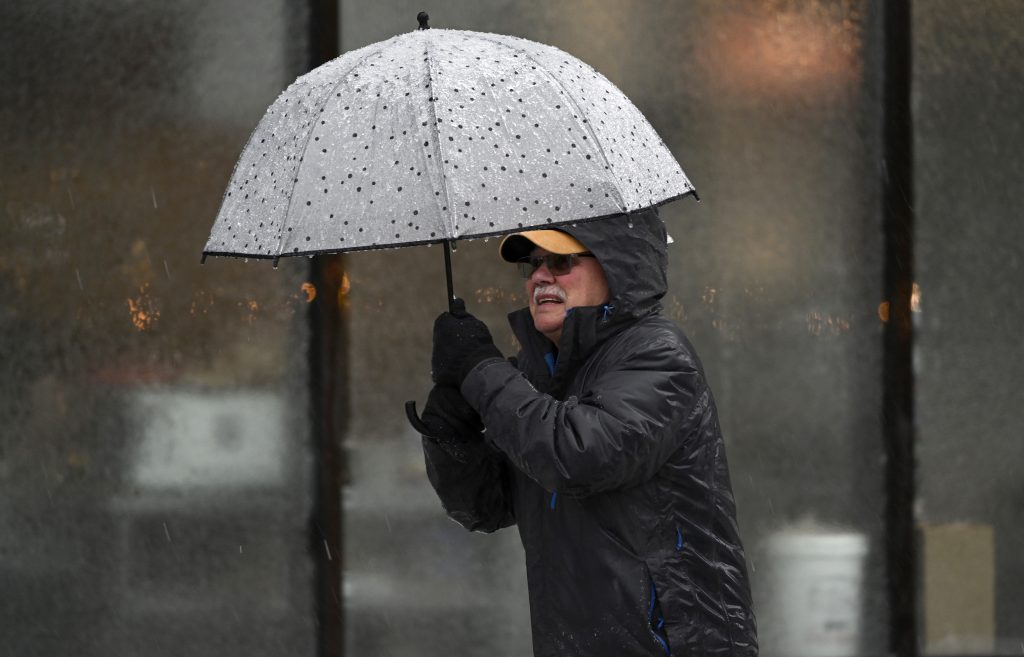ACLU sues North Carolina over harsher riot punishments

Posted April 11, 2023 6:17 pm.
RALEIGH, N.C. (AP) — Harsher punishments for violent protests in North Carolina are being challenged by a prominent civil rights group, which said in a federal lawsuit filed Tuesday that several parts of a new anti-riot law are unconstitutional.
The North Carolina law was drawn up in response to protests against racial injustice and police brutality in 2020. The demonstrations following George Floyd’s death were largely peaceful but occasionally descended into chaos after dark.
The American Civil Liberties Union of North Carolina is asking a U.S. District Court to block enforcement of several provisions of the new law, arguing it “impermissibly criminalizes North Carolinians who exercise their fundamental free speech, assembly and petitioning rights.”
“It is a flagrant attempt to vilify and criminalize a social justice movement,” said Sam Davis, an attorney with the ACLU of North Carolina Legal Foundation.
The law was passed last month by the Republican-controlled General Assembly with some bipartisan support. It raises criminal punishments for willingly participating in or inciting a riot. Beginning in December, fines and prison time will increase, typically by a couple years or more, for protesters who brandish a weapon, injure somebody or cause significant property damage. The law also creates new crimes for protesters who cause a death or incite a riot that contributes to a death.
House Speaker Tim Moore sponsored the bill himself, citing firsthand accounts of rioting and looting in downtown Raleigh in June 2020 amid otherwise peaceful protests as his motivation. He and other supporters called the legislation a necessary deterrent and said it will prevent protesters from misinterpreting their First Amendment rights as condoning destruction.
Existing state laws “were not sufficiently strong enough to guarantee that those who engaged in the most violent and destructive behavior would ever see the inside of a jail cell,” Moore said during House floor debate in February.
Moore’s office did not immediately respond Tuesday to messages seeking comment on the lawsuit.
The ACLU suit says provisions of the new law are overly broad, including the definition of a riot as a “public disturbance” involving three or more people whose assembly causes injury or damage, or creates a “clear and present danger” of injury or damage.
The civil rights group also warns that the law criminalizes urging another person to engage in activities defined as rioting, and has provisions that could punish protest leaders who don’t engage in violence themselves. These provisions “target mere advocacy” in violation of the First Amendment, the lawsuit states, and could dissuade people from engaging in lawful demonstrations.
Democratic Gov. Roy Cooper successfully vetoed a similar proposal in 2021, noting that it could “intimidate and deter” peaceful protesters.
Cooper allowed the bill to become law without his signature last month but expressed concerns about “disparate impacts on communities of color.”
Republicans last month were one seat shy of a veto-proof supermajority in the House, meaning they needed at least one Democrat to override a veto. But six House Democrats — including one who was a chief sponsor — voted in favor of the measure when it passed the chamber in February, indicating a veto override would’ve likely succeeded.
But the GOP now holds a supermajority in both legislative chambers after Rep. Tricia Cotham formally changed her party registration from Democrat to Republican on Monday.
Under the law, business owners can seek compensation from protesters who damage property, equal to three times the monetary damage.
Those accused of rioting or looting will also have to wait 24 hours before their bond is set. Bill supporters argued that defendants could otherwise be released immediately by a magistrate and continue causing destruction.
Social justice advocates criticized the measure as it moved quickly through the General Assembly, saying it targets Black Lives Matter demonstrators and other minority groups by scaring them away from exercising their constitutional rights. Some warned it might lead to more arrests of Black and brown protesters who could be unfairly perceived by police as threats to instigate violence or disorder.
___
Hannah Schoenbaum is a corps member for the Associated Press/Report for America Statehouse News Initiative. Report for America is a nonprofit national service program that places journalists in local newsrooms to report on undercovered issues.
Hannah Schoenbaum, The Associated Press








